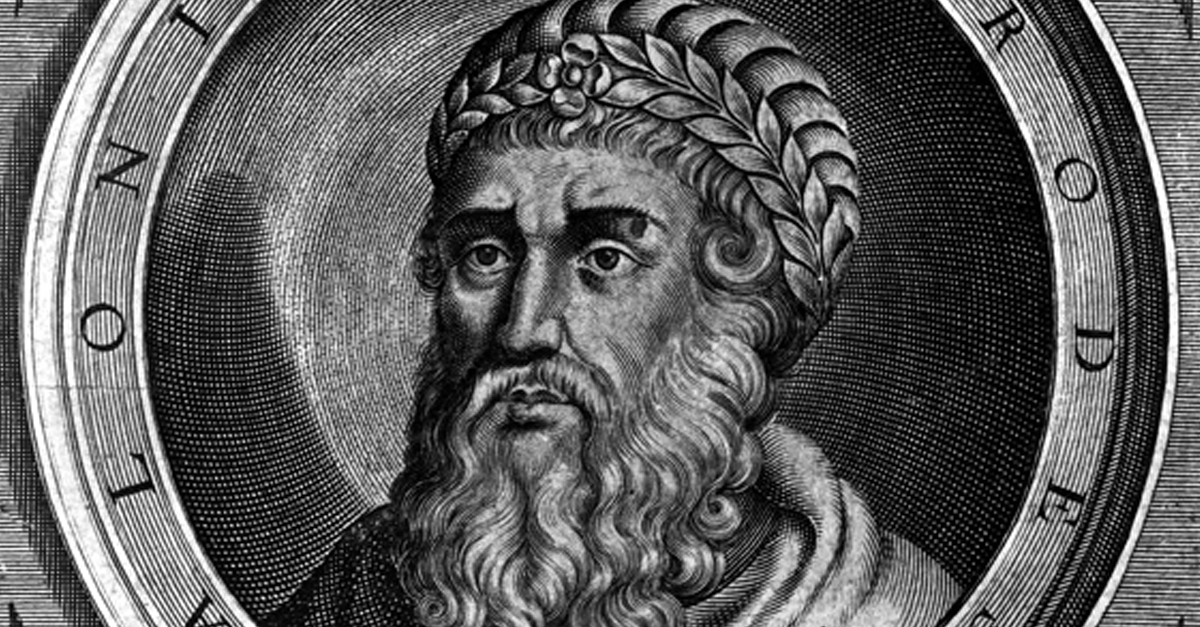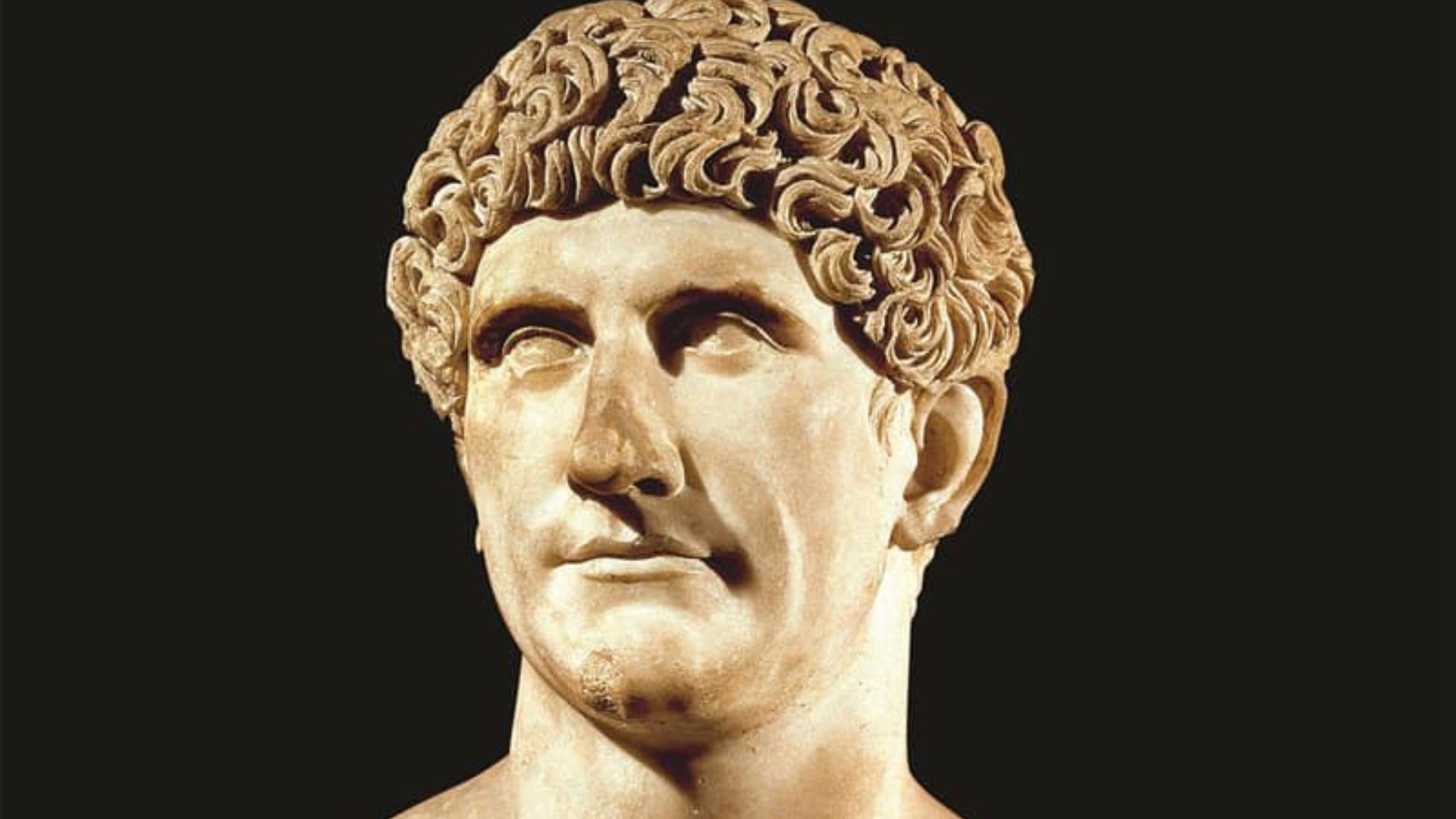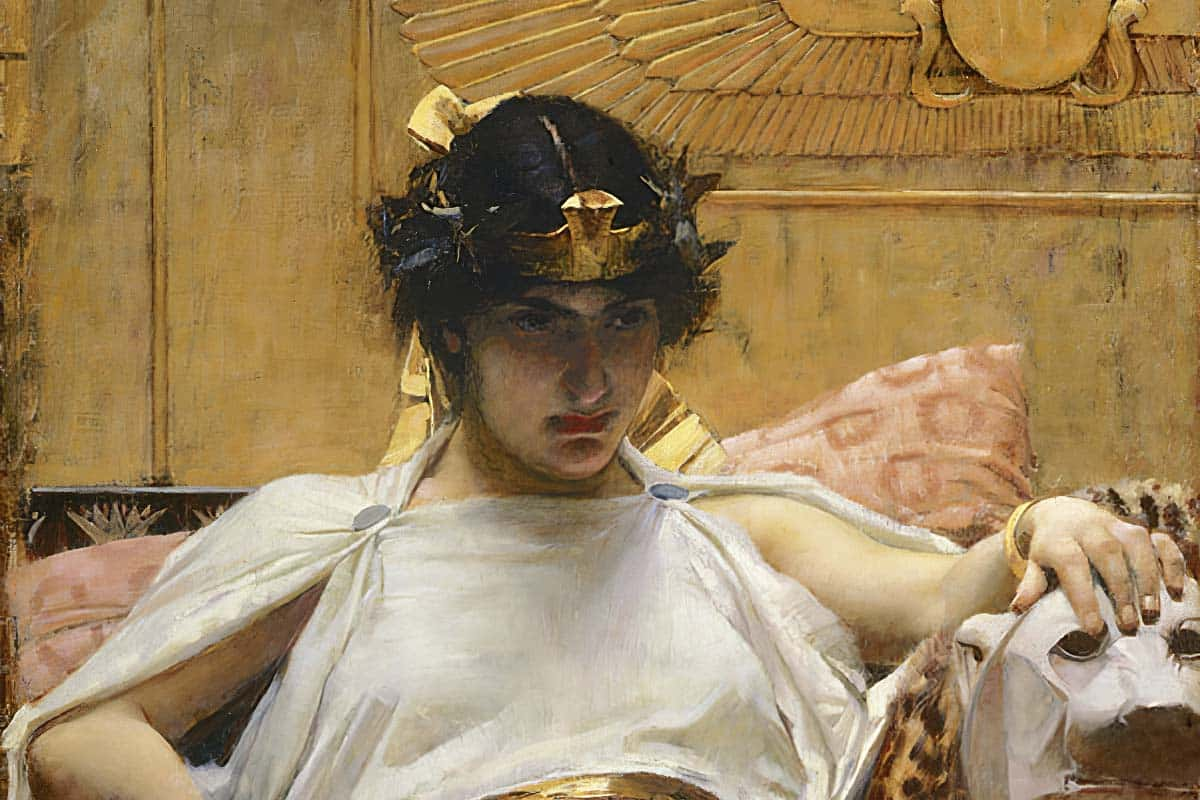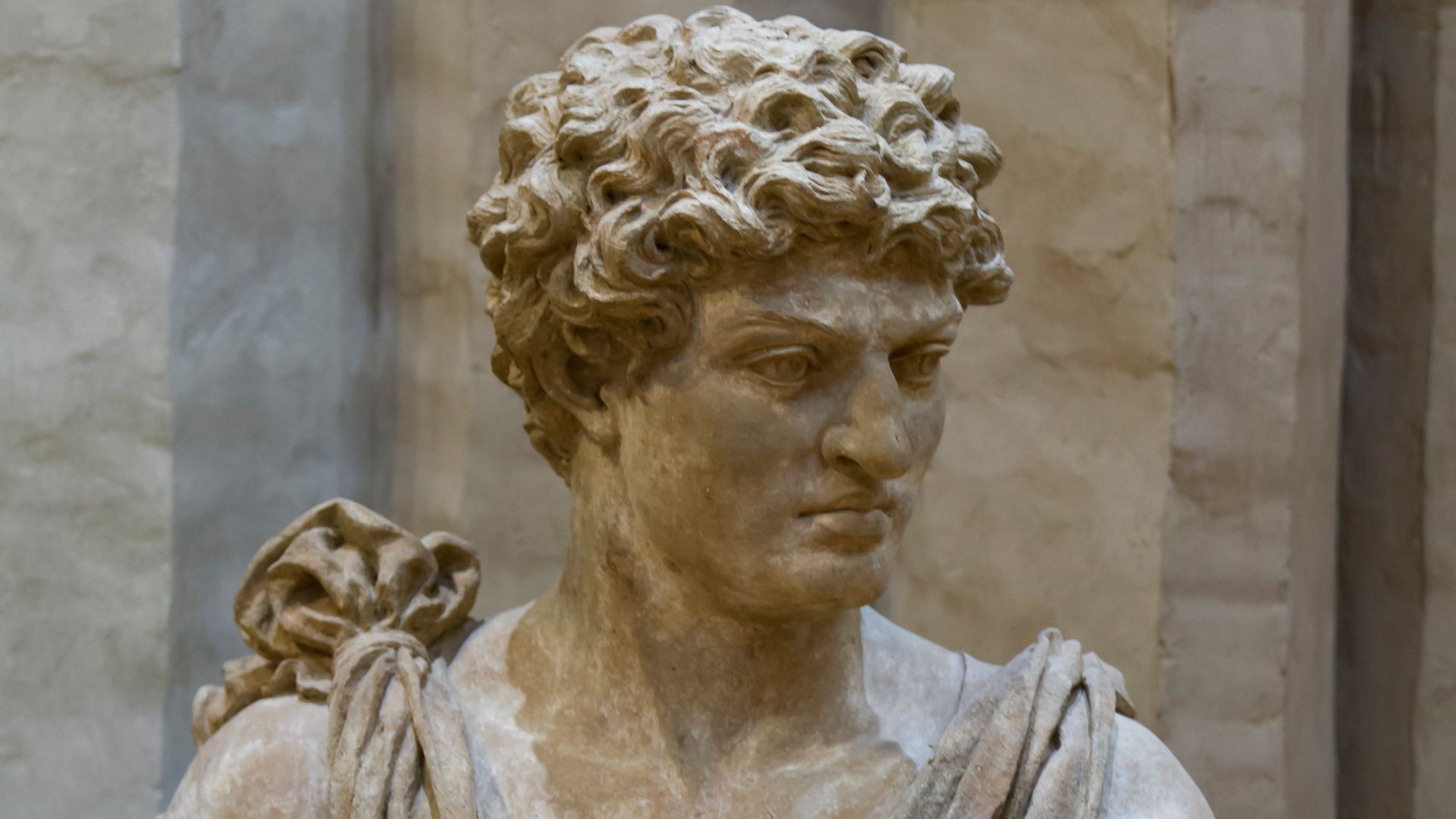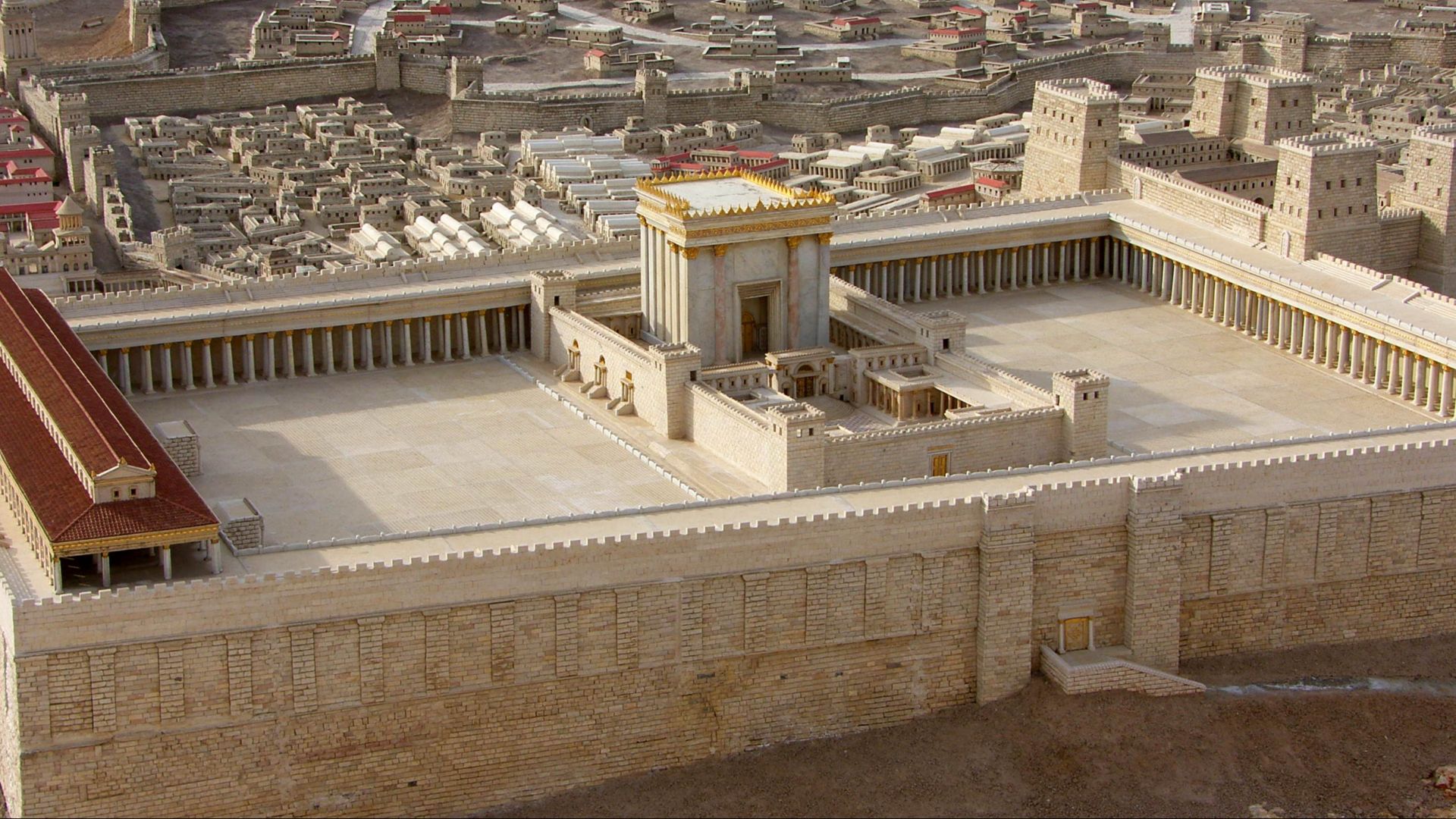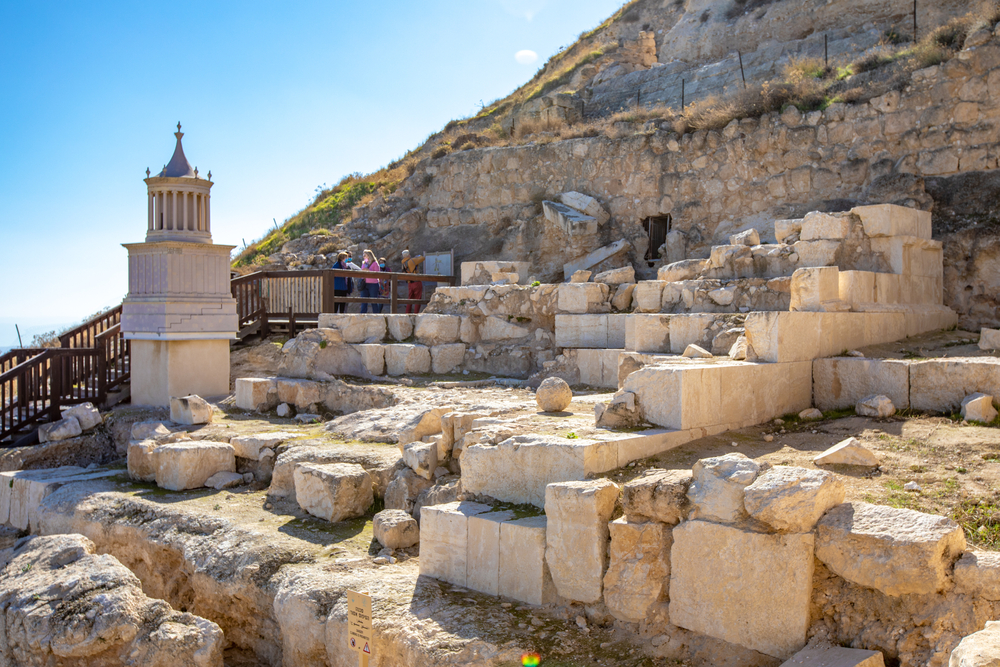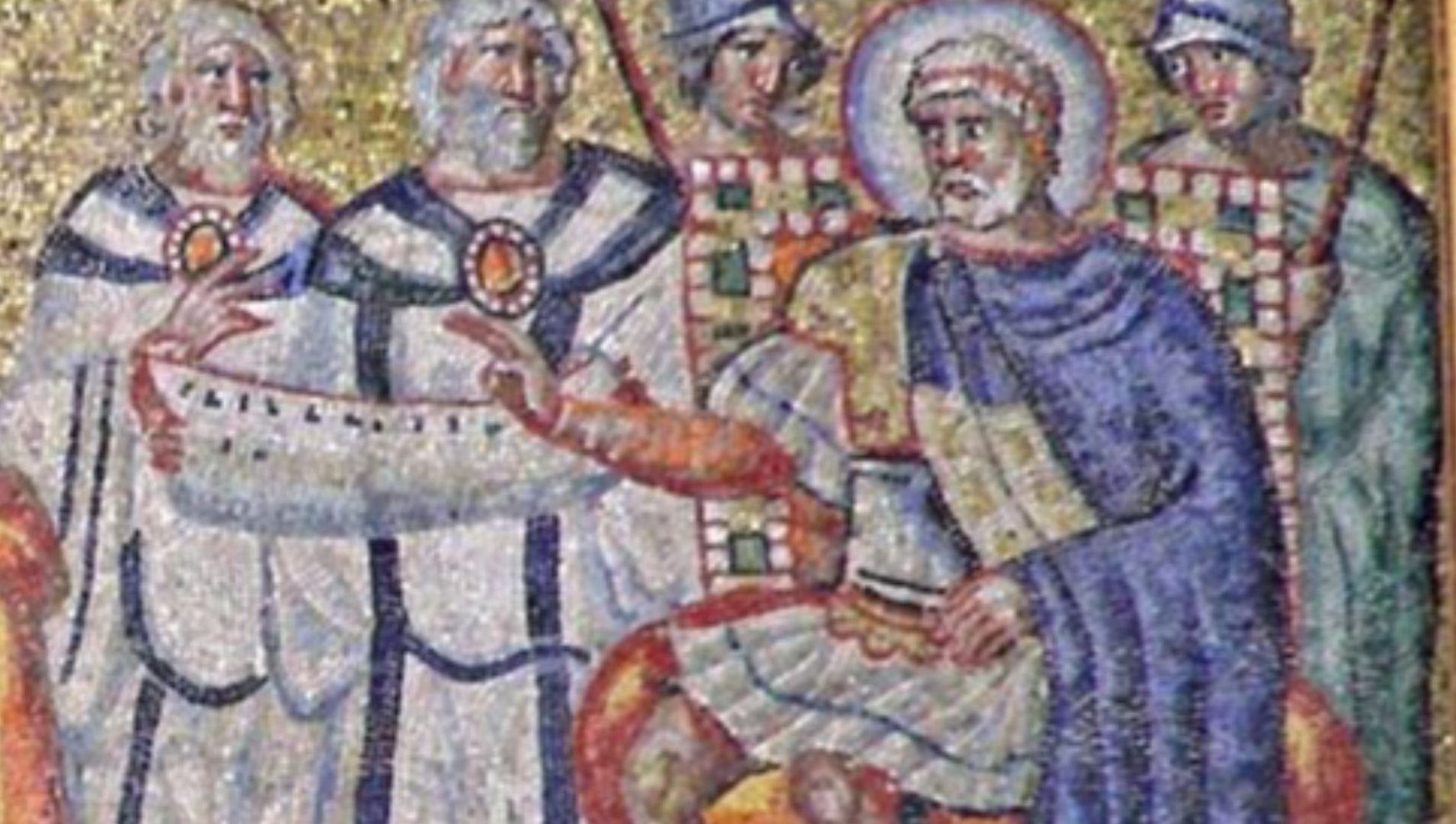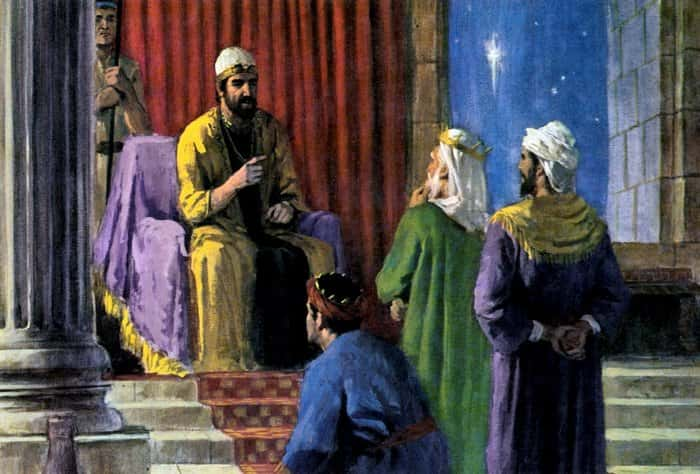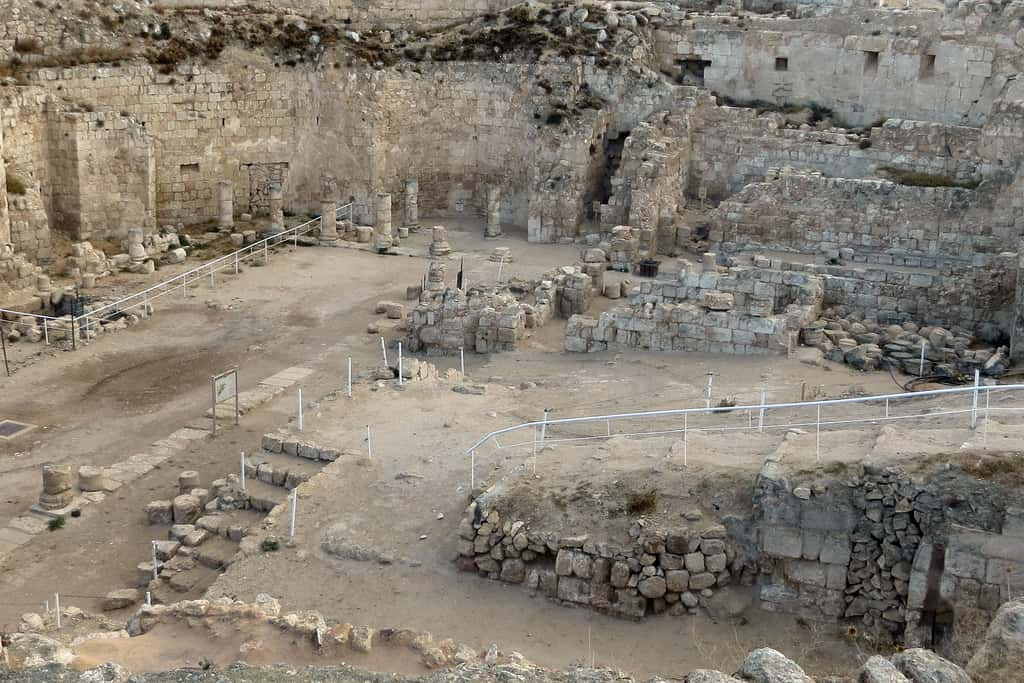Trying To Have It All
Whether drawing his story from the Bible or examining the more secular sources on his life, it’s clear that a significant part of Herod the Great’s legacy stems from his insecurities as king. Thrust into power, he was willing to stop at nothing to safeguard his rule, including either the appeasement or execution of anyone who disagreed with him.
This desire to constantly improve his reputation remained with him—right up to his grisly end.
Factinate Video of the Day
1. He Had A Different Upbringing
For much of his time in power, Herod the Great focused nearly all of his efforts on pandering to the influential powers around him. This was true whether it was with the dominant might of Rome, or the multiple significant populations that inhabited his kingdom, so it’s difficult to figure out with whom his heart truly sided with.
However, from the moment he was born around 72 BCE, his father raised him in the Jewish culture, as he was of Edomite heritage. This wasn’t all his father did for him, though.
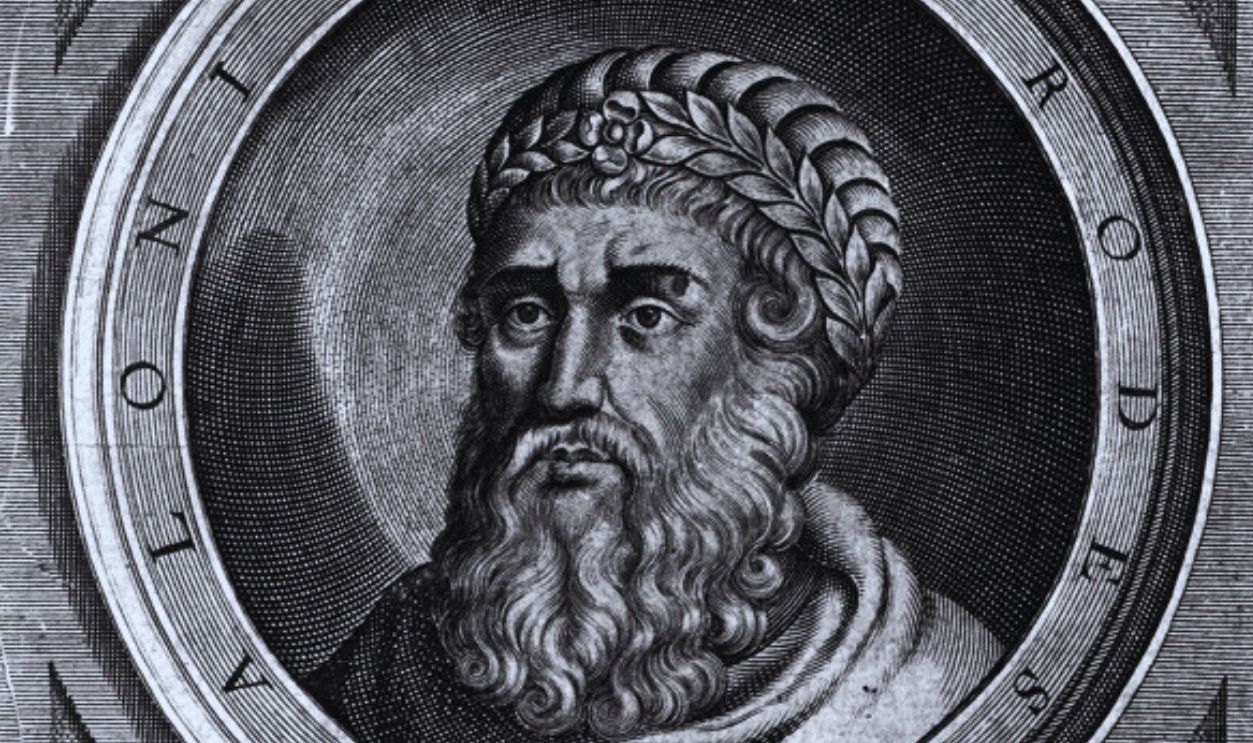 Unknown Author, Wikimedia Commons
Unknown Author, Wikimedia Commons
2. His Father Helped Him
Herod’s father, Antipater, proved to be a trusted ally of Julius Caesar, whose favor benefited his sons and daughters alike, making all of them Roman citizens. This wouldn’t be the only reward that Herod would see, since his father soon had the power to grant him an authority of his own, and appointed Herod the governor of Galilee in 47 BCE.
Herod’s good fortune continued—but as we'll see, it wouldn't last forever.
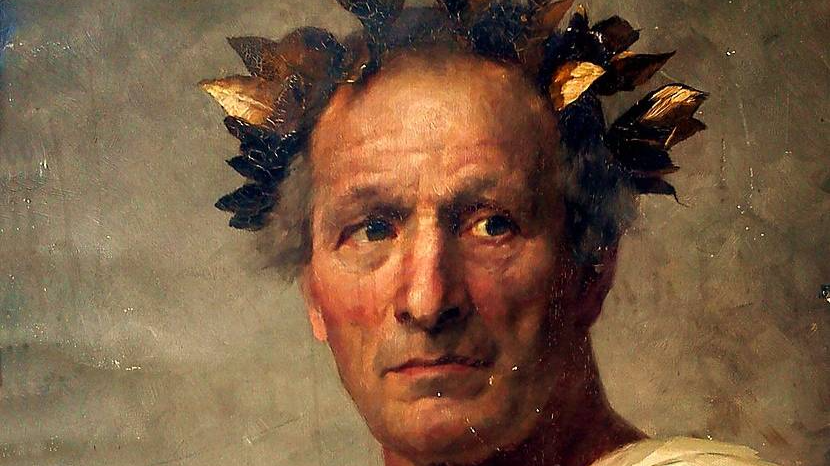 Clara Grosch, Wikimedia Commons
Clara Grosch, Wikimedia Commons
3. They Rose Up
Herod immediately proved his worth as a leader, and even as Rome experienced its own political shifts, his family remained in the Empire’s favor. Naturally, he wasn’t the only one of Antipater’s children to benefit from this, as the Roman leader Mark Antony appointed Herod and his brother, Phasael, as tetrarchs of Rome.
Life seemed to have blessed Herod and his family—but the dark truth was that trouble was brewing on the horizon.
4. He Ran Away
Rome’s decision to name Herod and Phasael as tetrarchs was largely to strengthen the King of Judea, Hyrcanus II. However, the landscape was primed to change in a nightmarish way. Chaos erupted when the king’s nephew, Antigonus, usurped the throne in 40 BCE. This made Judea a dangerous place for anyone who supported the former king, so Herod made a quick escape to Rome.
But things wouldn’t end so well for everyone.
 Vic Film, Herod the Great (1959)
Vic Film, Herod the Great (1959)
5. He Lost His Brother
Herod successfully fled Judea and reached Rome, where he hoped to find some help in retaking the kingdom. Others in his family were less lucky, as Antigonus and his supporting army of Parthians captured his brother Phasael. The fallout was horrific as Phasael subsequently took his own life.
Meanwhile, fate had a shocking twist in store for Herod.
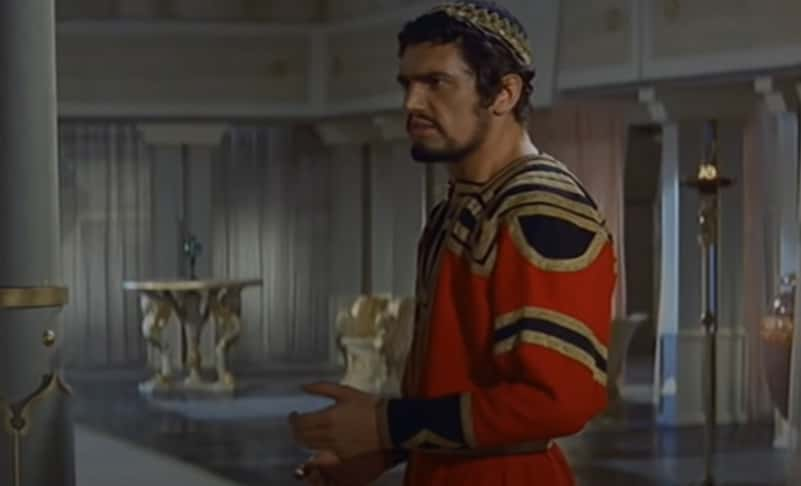 Vic Film, Herod the Great (1959)
Vic Film, Herod the Great (1959)
6. They Chose Him
Herod went before the Roman Senate, hoping they would do something to remove Antigonus from his seat of power, but what happened next surprised him. The Senate appointed Herod the new King of Judea, and gave him all the resources he had asked for before sending him back to claim it.
The drama that unfolded was unbelievable.
7. They Bridged The Gap
Herod’s resolve was unyielding in retaking his new kingdom, but it wasn’t just about overcoming Antigonus and ending the Hasmonean Dynasty he was a part of. Herod envisioned a long-lasting peace, which he attempted to achieve by marrying Mariamne, Antigonus’ niece, to solidify a future alliance.
There was just one problem.
8. He Sent Her Away
Herod’s marriage to Mariamne was an attempt to join his new dynasty with the prior Hasmonean Dynasty, but it came at a jaw-dropping cost. You see, Herod was already married. Even though Jewish law had no rules against polygamy, Herod couldn’t tolerate his wife, Doris, sticking around and banished her from Judea—along with their only son, Antipater II.
This wasn’t just a political decision, though.
 Vic Film, Herod the Great (1959)
Vic Film, Herod the Great (1959)

History's most fascinating stories and darkest secrets, delivered to your inbox daily.
9. He Truly Loved Her
Mariamne wasn’t Herod’s first wife, and wouldn’t be anywhere close to his last, but she did stand out for another reason. Their union was for political benefit, like many marriages among nobility around this time, but Mariamne was different since Herod truly seemed to be in love with her.
Little did either of them realize at the time, but their romance would one day have one of the most chilling conclusions in history.
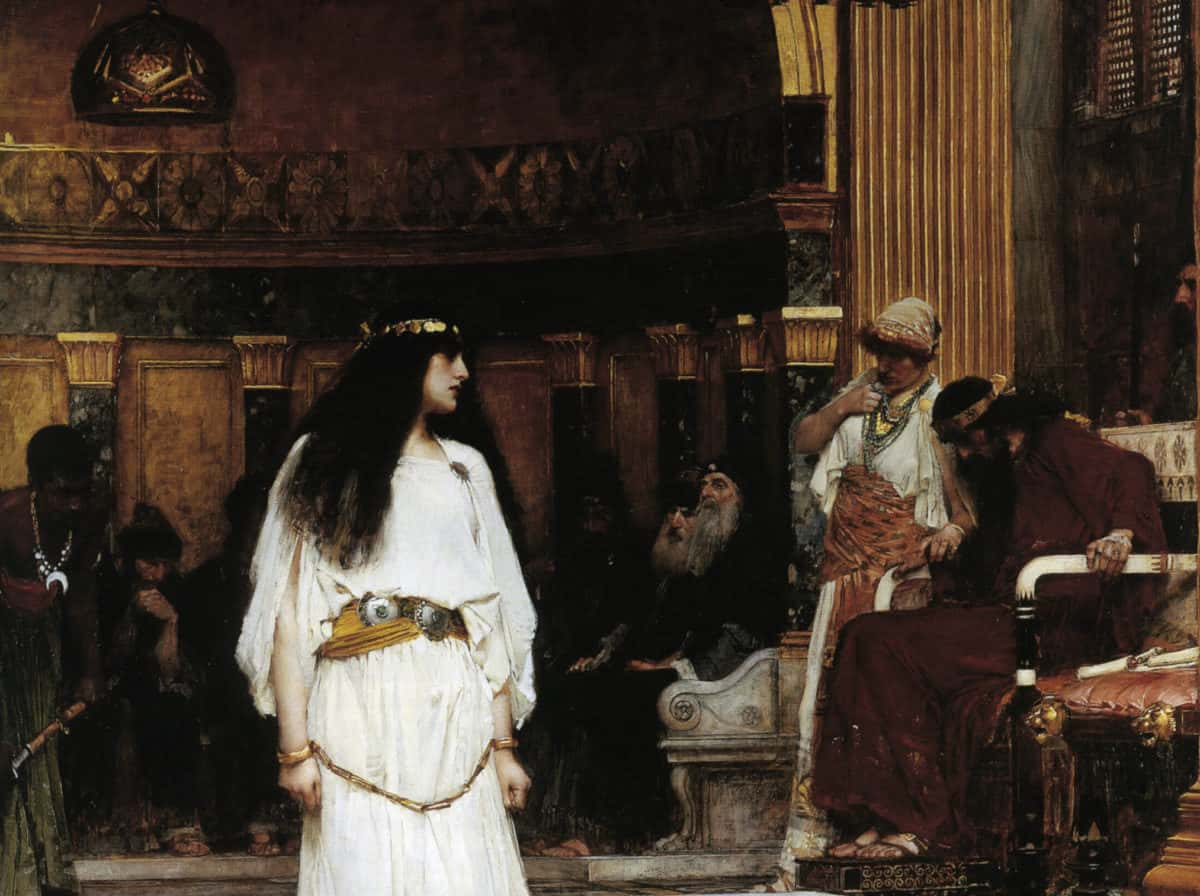 John William Waterhouse, CC BY-SA 4.0, Wikimedia Commons
John William Waterhouse, CC BY-SA 4.0, Wikimedia Commons
10. He Conquered It
Beyond the passions of his personal life, Herod’s campaign was going strong—and by 37 BCE, he was finally making plans to confront Antigonus directly. Fortunately, he had the support of Mark Antony and the governor of Syria, and with their help, he launched an attack on Jerusalem. By the end of the battle, Herod had conquered the city and defeated Antigonus, whom he showed no mercy.
 Vic Film, Herod the Great (1959)
Vic Film, Herod the Great (1959)
11. She Was Against Him
Emerging as the victor against Antigonus, Herod promptly sent him to Rome to face execution. With Antigonus’ demise, Herod’s appointment as Judea’s ruler was successful, but it was hardly something that pleased everyone. Since Herod’s in-laws were of the previous Hasmonean Dynasty, they held a serious grudge against him—and Alexandra, Herod’s mother-in-law, refused to let his rule be the end of them.
Unfortunately for her, she couldn’t act on her own.
 Hartmann Schedel, Wikimedia Commons
Hartmann Schedel, Wikimedia Commons
12. She Asked For Help
Elsewhere, another royal union had taken place as Cleopatra married Mark Antony, from which Alexandra got an idea. Contacting the Egyptian queen, Alexandra asked her to convince Antony to install her relative Aristobulus III as Judea’s High Priest, hoping to regain the family’s influence. But this plot would only end in murder.
13. He Found Out
Instead of immediately agreeing, Cleopatra advised Alexandra to take Aristobulus and leave Judea in order to speak with Mark Antony herself. However, before they could make any moves, Herod discovered the scheme. Believing there was a chance Antony would remove him and name Aristobulus king instead, Herod did something unspeakable—and had Aristobulus drowned.
This would have serious repercussions.
 Lawrence Alma-Tadema, Wikimedia Commons
Lawrence Alma-Tadema, Wikimedia Commons
14. She Outsourced Her Revenge
Although she didn’t know for certain, Herod’s mother-in-law, Alexandra, suspected he had been the one behind Aristobulus’ drowning, and swore to avenge this heinous act. Writing to Cleopatra again, she brought the grievance to the ear of Mark Antony, who had no choice but to call on Herod to answer for the accusation.
Fearing for his life, Herod did something quite demented—and it had everything to do with his wife.
15. He Ordered Her Demise
Herod’s love for Mariamne had quickly transformed into an intense and jealous obsession, to the point where he couldn’t tolerate any scenario where they were not together. Expecting the possibility that Antony would execute him for Aristobulus’ drowning, he quietly ordered his uncle Joseph to slay Mariamne if this outcome were to happen.
This didn’t remain a secret.
 Vic Film, Herod the Great (1959)
Vic Film, Herod the Great (1959)
16. He Said Too Much
Since Herod had entrusted his uncle to look after Mariamne, Joseph spent much of his time with the Queen and grew closer to her. Still, he remained loyal and wanted to show her how much the King cared, so he revealed Herod’s orders in the event of his execution. While Joseph believed this would demonstrate Herod’s unending love, the Queen saw it differently.
Things only got worse when news of Herod reached them.
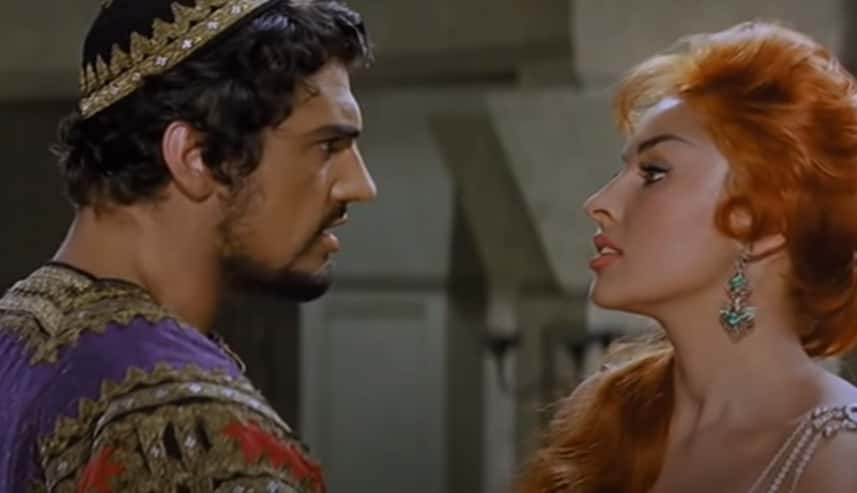 Vic Film, Herod the Great (1959)
Vic Film, Herod the Great (1959)
17. She Stepped In
After Mariamne learned of Herod’s plans for her demise, she was horrified to hear false rumors that the king had indeed met his end at the orders of Mark Antony. Based on this inaccurate report, Alexandra convinced Joseph to keep Mariamne safe by taking her to the Roman legions. This, of course, was a devastatingly premature move.
 Vic Film, Herod the Great (1959)
Vic Film, Herod the Great (1959)
18. She Played Her Hand
Terrified that her doom was getting closer, Mariamne soon had her fears relieved as the truth behind the rumors of Herod’s fate came to light upon his return home. He had little time to relax, though, as his sister Salome began manipulating him again—and her methods were beyond devious.
Salome tried to persuade Herod that Mariamne had cheated on him with Joseph in his absence. Herod was too paranoid to dismiss this accusation.
 Vic Film, Herod the Great (1959)
Vic Film, Herod the Great (1959)
19. He Was Convinced
Herod wasn’t too far gone yet, so one discussion with his wife put his doubts at ease...that is, until Mariamne confronted him about his orders to Joseph, taking him by surprise and confirming their affair, as he believed it was the only way Joseph would have revealed this secret. While he forgave Mariamne for this perceived infidelity, he directed his vengeance at Joseph—and executed him.
Meanwhile, he still had responsibilities to uphold.
 Vic Film, Herod the Great (1959)
Vic Film, Herod the Great (1959)
20. He Picked A Side
Around this time, Rome was experiencing another major change in leadership, as Mark Antony and Emperor Octavian had begun their conflict with each other. Meanwhile, Antony’s wife, Cleopatra, had used her husband to gain control over much of Herod’s lands. Nonetheless, Herod still sided with Mark Antony in the conflict.
Unfortunately, this did not end well.
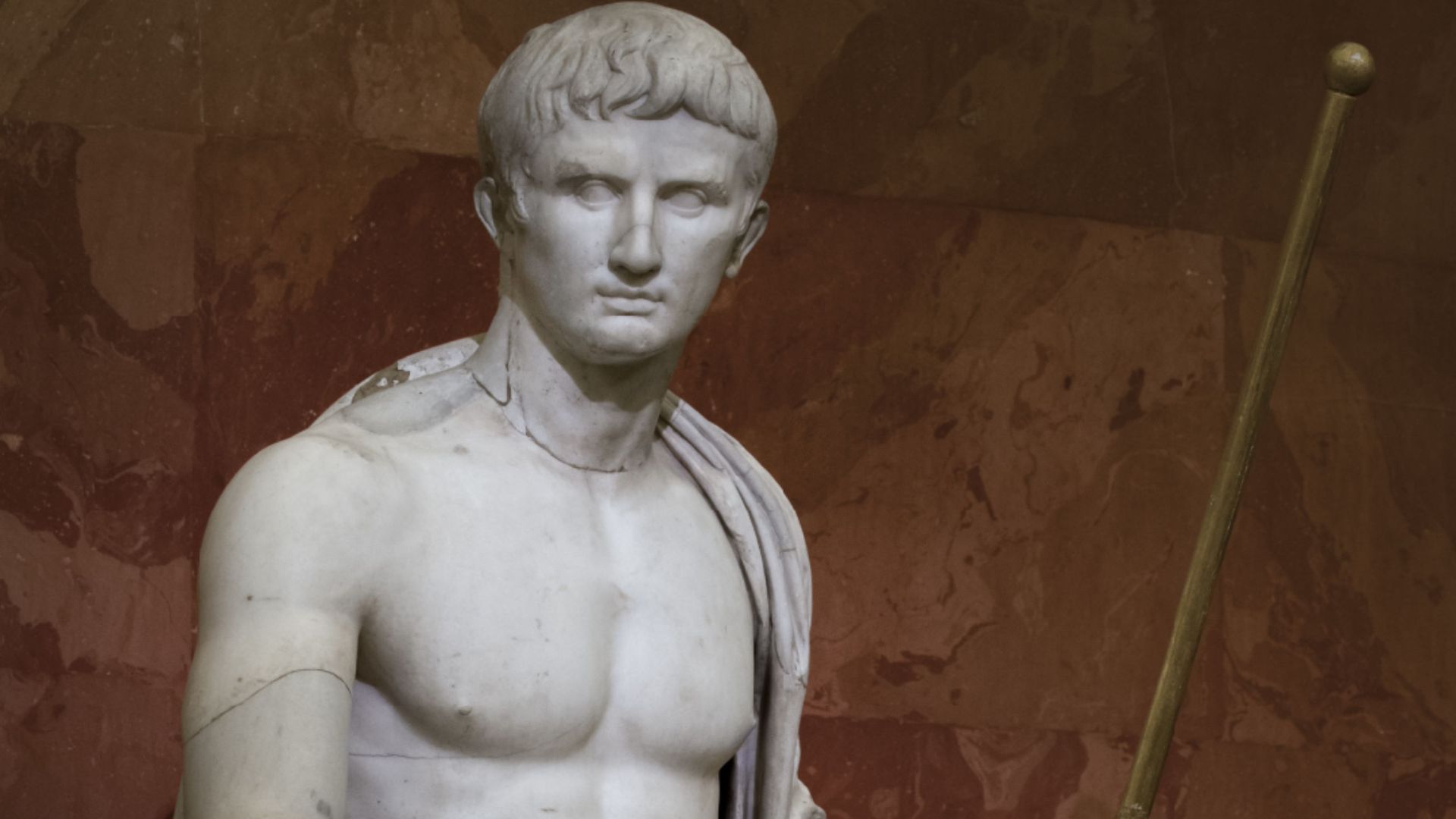 С. И. Сосновский, Wikimedia Commons
С. И. Сосновский, Wikimedia Commons
21. He Told Him
Herod was a strong ally of Mark Antony up until Antony lost to Octavian in 31 BCE, forcing Herod to reevaluate his decisions. If he wanted to stay in power, he had no choice but to speak with Octavian and confess where his allegiance had previously lain. Fortunately for him, the Emperor still believed in Herod’s potential and confirmed him as king.
Not wanting to waste this chance, Herod got to work.
22. He Was An Architect
Herod began his rule with numerous concepts in mind for how he wanted to rule his kingdom, including everything he intended to change or add. A significant part of these plans was about improving Judea’s infrastructure. So, he began several building projects, ranging from his own creations to rebuilding previous structures, such as the Second Jewish Temple.
Of course, even the temple itself wouldn’t stay up forever.
23. It Didn’t Last
The construction of the Second Jewish Temple was such an accomplishment for the king that it eventually gained the nickname “Herod’s Temple”. However, it’s not something that people can still visit, as Roman forces destroyed the building in 70 CE. Nowadays, all that remains of the structure are the four retaining walls.
Still, this wasn’t the only thing he built.
24. He Created A Stronghold
Another of Herod’s crowning architectural achievements was the construction of Herodium, a fortress built in honor of his victory over Antigonus in 37 BCE. Placed on the outskirts of the Judean desert, Herodium wasn’t only intended as a celebration, but a haven in case he needed to escape any overwhelming threats.
At the same time, there were a few sneaky motives behind these projects.
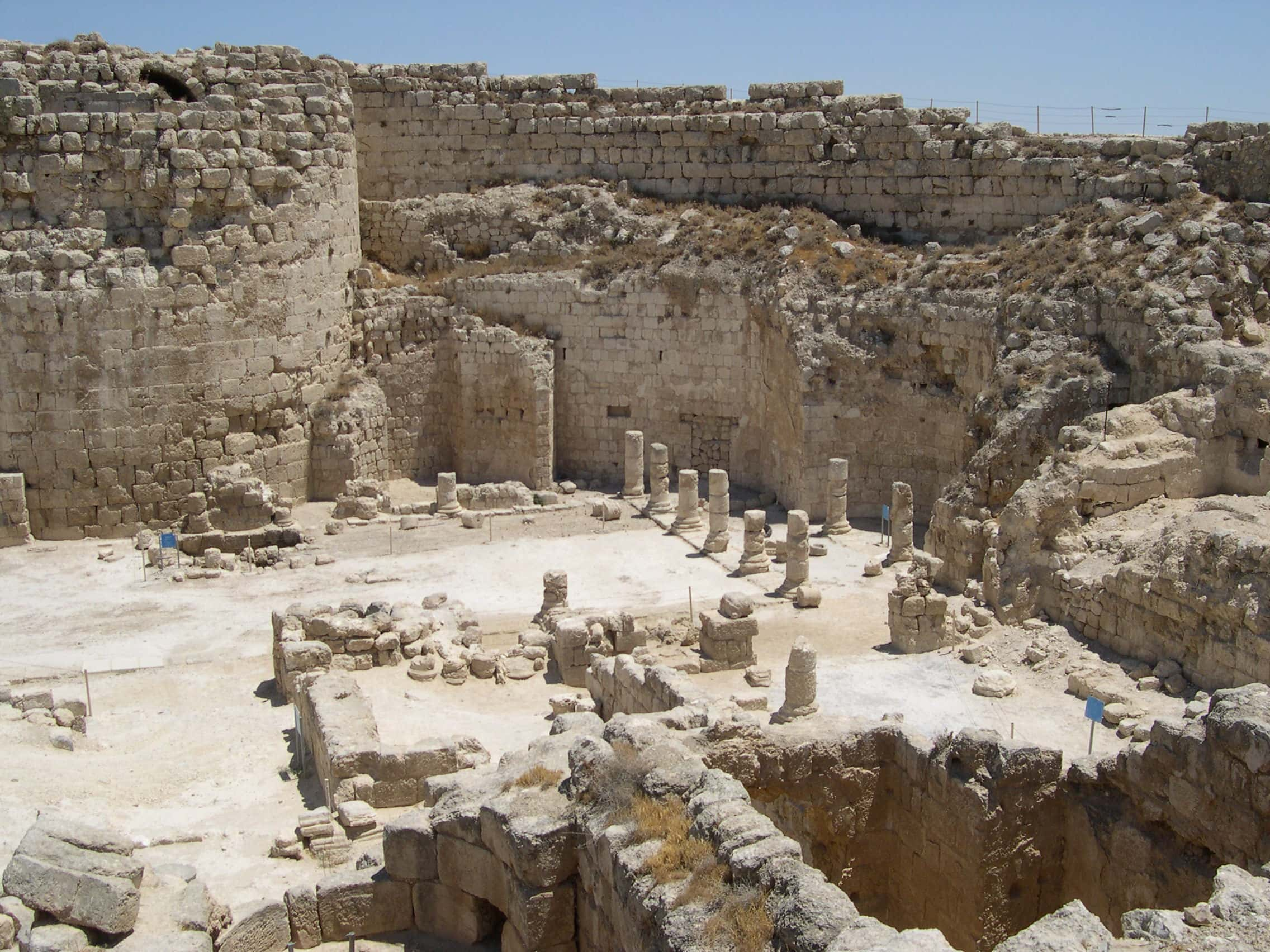 upyernoz from Haverford, USA, CC BY 2.0, Wikimedia Commons
upyernoz from Haverford, USA, CC BY 2.0, Wikimedia Commons
25. He Had His Reasons
At first glance, it might be easy to assume Herod built so many significant Jewish structures because of his dedication to his culture, but unfortunately, they were more selfish endeavors. Apart from providing a place of refuge in case of emergency, each building was mostly intended to improve his reputation in the eyes of his Jewish subjects.
This may have had the opposite effect.
26. They Paid For It
The construction projects of King Herod took a great many years to complete, and even greater manpower, but they also incurred a large amount of the most basic cost—money. This didn’t come out of Herod’s pocket, though, and he instead enacted a taxation system at the expense of the Jewish population.
Of course, this wasn’t their only reason for disliking him.
 David Shankbone, Wikimedia Commons
David Shankbone, Wikimedia Commons
27. He Was Insensitive
Very few things in history are completely black and white, and this is no different in Herod’s case, especially concerning how he ruled his kingdom. There were many instances where Herod appeared as a respectful king who followed Jewish tradition. However, the disdain from his Jewish subjects came from the numerous other times he had offended them.
Nonetheless, he wanted to appear as a King for everyone.
 Vic Film, Herod the Great (1959)
Vic Film, Herod the Great (1959)
28. He Tried To Please All Of Them
Herod strived to maintain a good relationship with Rome’s Emperor, which wasn’t always so easy. As King of Judea, his duties were to the Jewish people and their beliefs, which conflicted with Rome’s reverence for Augustus as a god. Additionally, while serving Jewish and Roman interests, he had a whole pagan population to take care of.
Behind the scenes, his personal life was in turmoil.
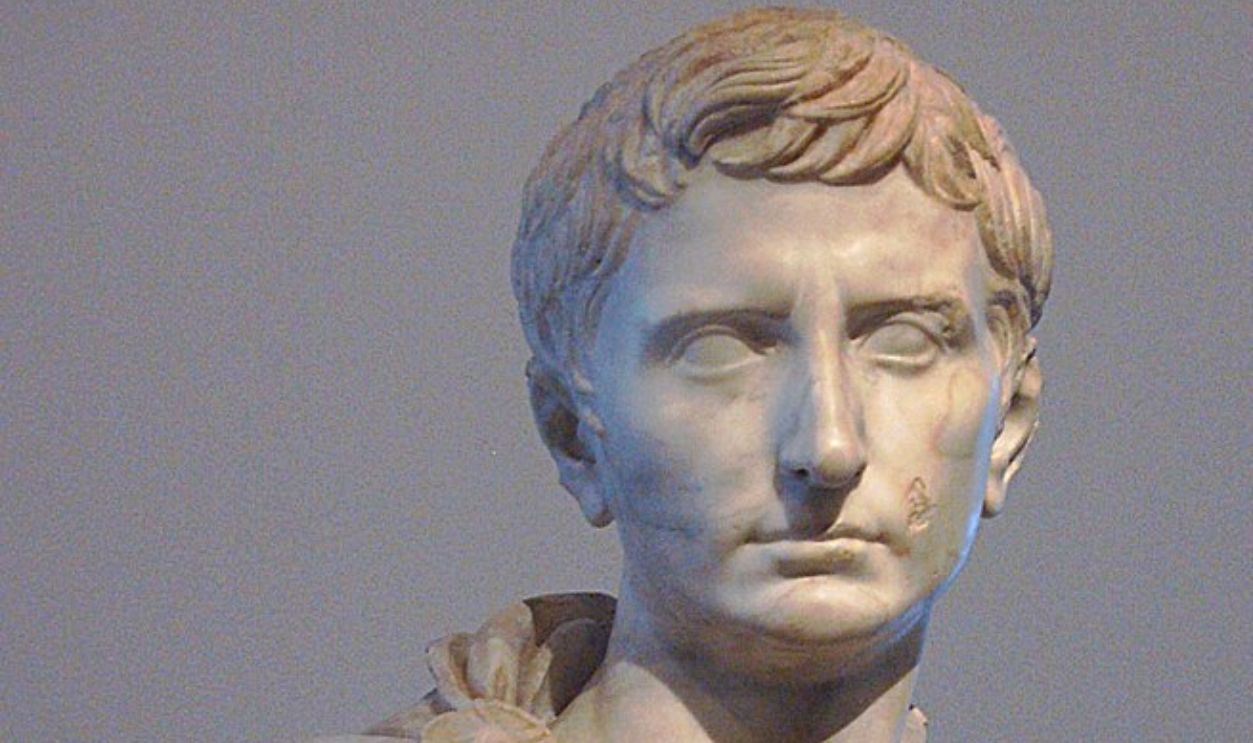 Gautier Poupeau from Paris, France, CC BY 2.0, Wikimedia Commons
Gautier Poupeau from Paris, France, CC BY 2.0, Wikimedia Commons
29. She Took Advantage Of Him
With every passing year, Herod grew increasingly paranoid against any who posed a threat to his rule, and so his grip on reality began to slip. Rather than look out for him, Herod’s sister, Salome, saw his failing sanity as a means to secure his downfall. Through patience and cunning, she subtly manipulated him from the shadows.
Soon enough, she would have the perfect opportunity to plot against him.
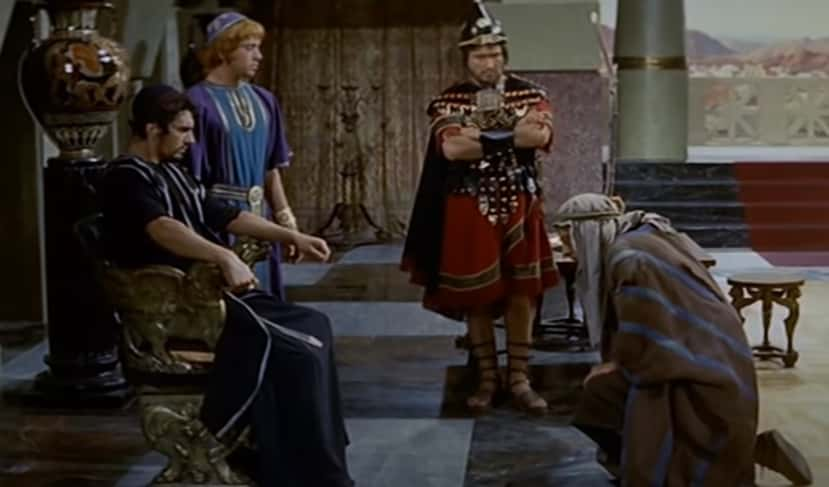 Vic Film, Herod the Great (1959)
Vic Film, Herod the Great (1959)
30. He Made The Same Arrangement
Both Salome and Mariamne were still in Herod’s life, but he knew that they had quickly come to despise each other, which was a problem when he wasn’t around. So, when he left Judea for Rhodes in 31 BCE, he kept them apart. Still, he couldn’t shake the same feeling as when he left them before, so he again ordered Mariamne’s execution if he perished.
It seems history was doomed to repeat itself.
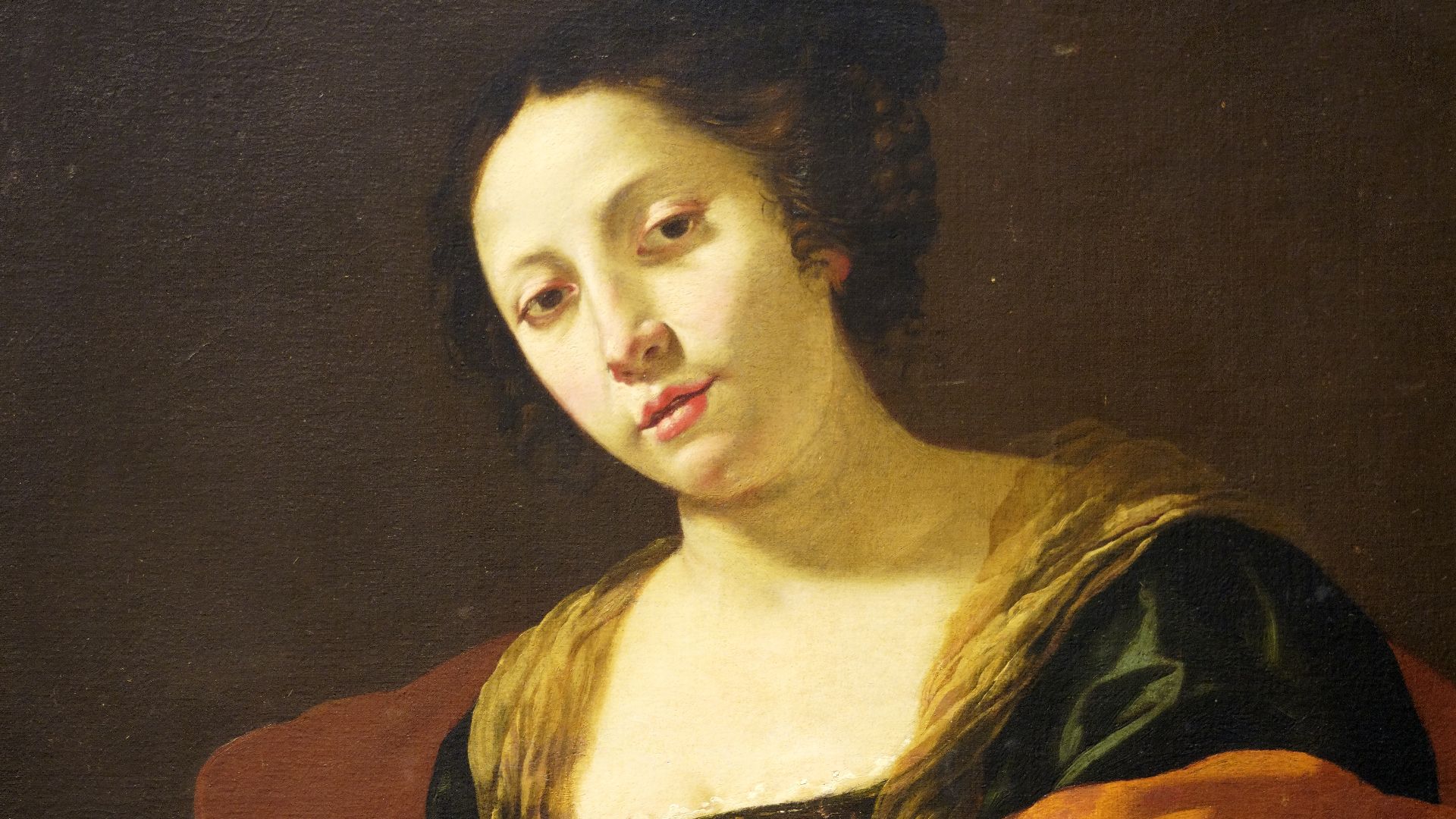 Charles Mellin, Wikimedia Commons
Charles Mellin, Wikimedia Commons
31. She Sussed It Out
Herod once again charged a man whom he deemed trustworthy, Sohemus, with the safety of his wife and that of his mother-in-law as well, despite likely having a strong sense of déjà vu. Just like before, Mariamne was able to get the truth of Herod’s orders out of her protector—but was far less forgiving this time.
She didn’t hide this disdain from him either.
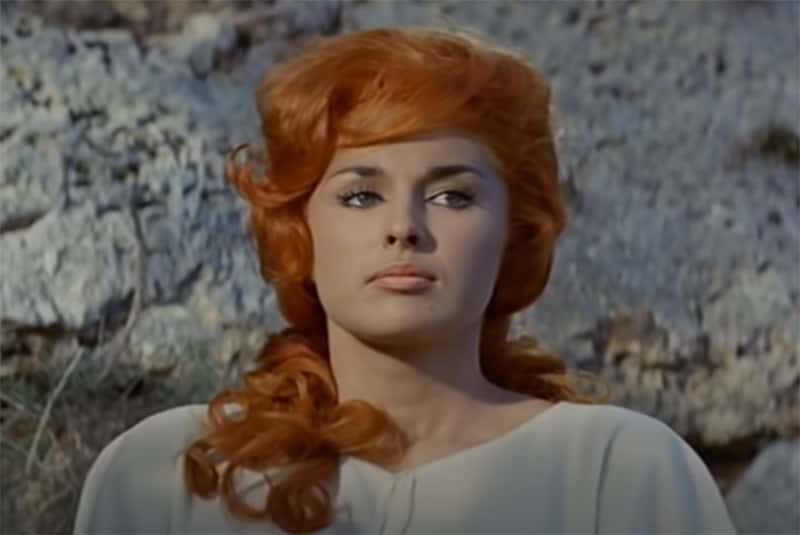 Vic Film, Herod the Great (1959)
Vic Film, Herod the Great (1959)
32. She Hated Him
Unlike the leniency she had the first time, Mariamne received the news of Herod’s orders with nothing but resentment. Taking it as proof of Herod’s lack of care for her, she refused to treat him with any kindness once he came home. Unfortunately, her mother and Salome took advantage of this and told Herod that Mariamne was planning his demise.
These accusations caused his paranoia to spike to the high heavens.
 Vic Film, Herod the Great (1959)
Vic Film, Herod the Great (1959)
33. He Learned The Truth
Believing the lies of his sister and mother-in-law, but still needing proof, Herod captured the Queen’s favorite eunuch and interrogated him—painfully. Herod repeatedly questioned him about whatever plot Mariamne was planning, but there was none. The eunuch only revealed Mariamne’s disdain for Herod, stemming from her conversation with Sohemus.
This would have disastrous consequences.
 Vic Film, Herod the Great (1959)
Vic Film, Herod the Great (1959)
34. He Put An End To It
Furious that someone had revealed his secret orders once again, Herod executed Sohemus without hesitation, but he still felt conflicted about Mariamne. He allowed her to stand trial for the accusations against her, but due to Salome and Alexandra, these only increased. In the end, Herod convicted Mariamne of treason and executed her in 29 BCE.
Understandably, this weighed heavily on his mind.
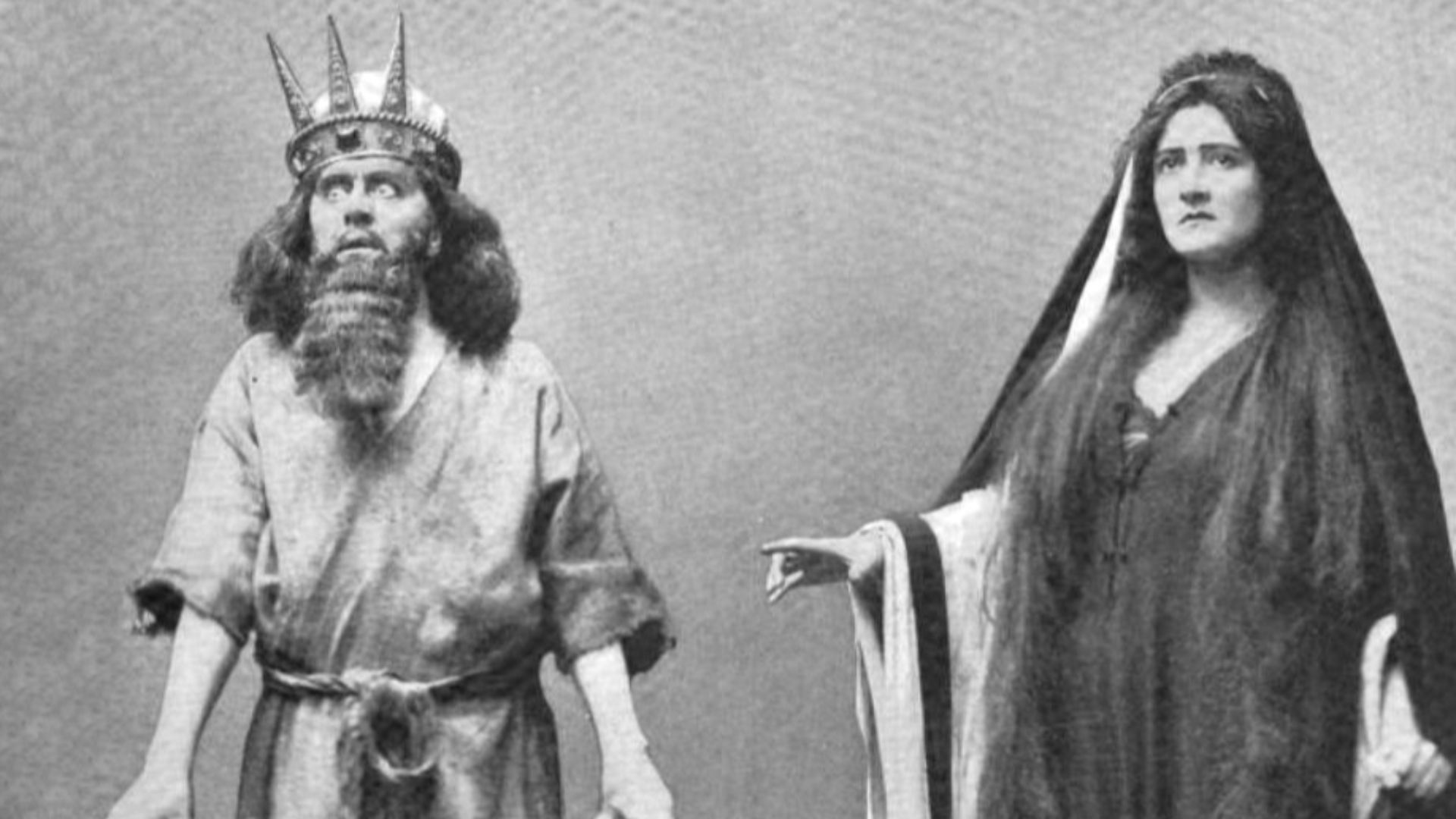 Langfier, Old Bond Street (no individual credited), Wikimedia Commons
Langfier, Old Bond Street (no individual credited), Wikimedia Commons
35. He Preserved Her In Honey
One of the most demented stories about Herod and Mariamne is what he did with her remains. According to stories from the Talmud, Herod kept his late wife's body preserved in honey. But the alleged reason why is enough to make anyone's blood run cold. Sources say it was so that Herod could continue to be intimate with Mariamne, thereby satisfying his "animalistic desires".
But Herod's awful agenda didn't end there.
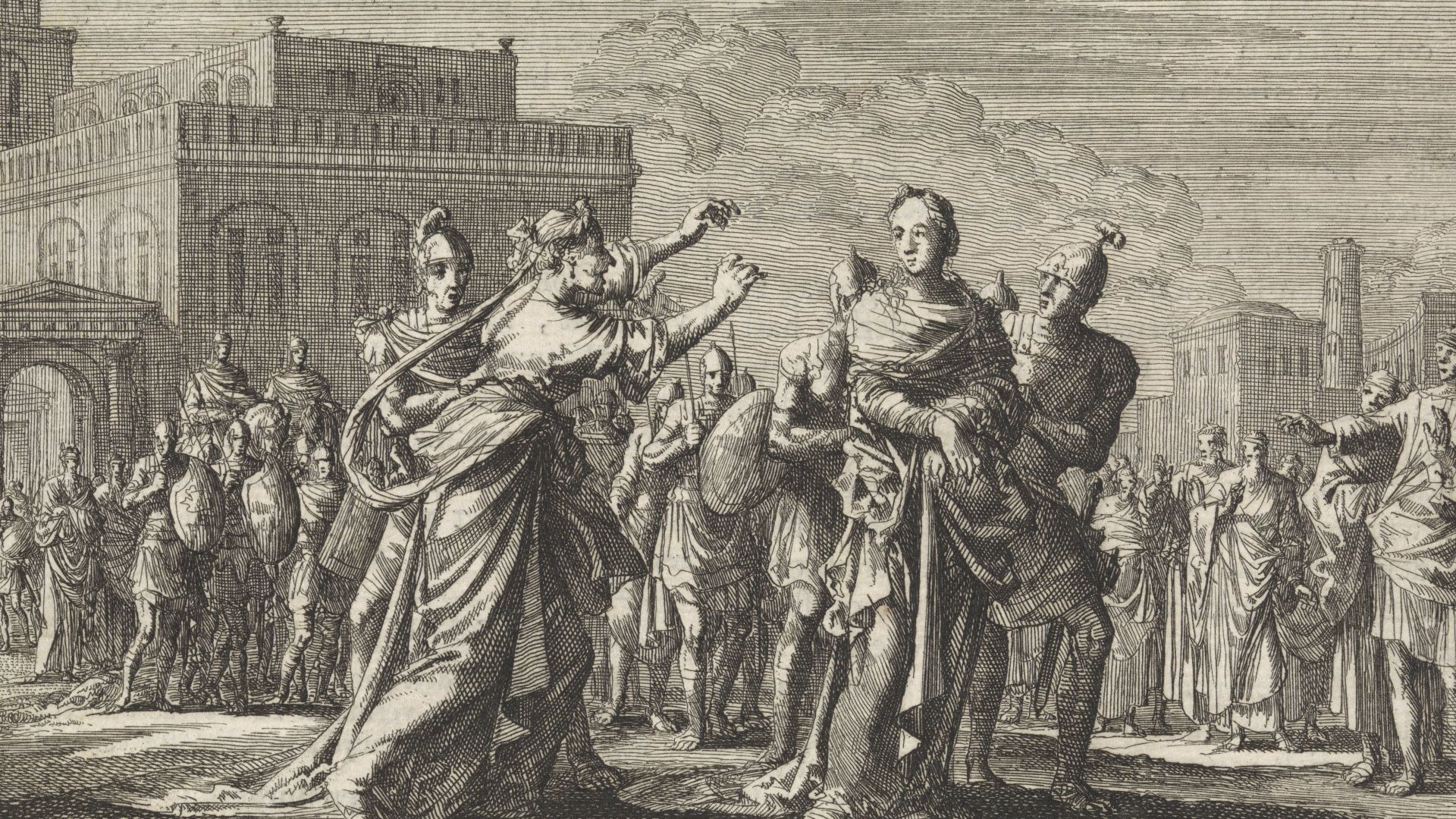 Rijksmuseum, Wikimedia Commons
Rijksmuseum, Wikimedia Commons
36. She Took Her Shot
No matter what, Herod was still in love with Mariamne, and her execution left him inconsolable. With years of rash decisions to back her claims up, Alexandra asserted that Herod was in no shape to rule, so she took the throne. However, Herod was still stable enough to recognize this coup and executed his mother-in-law without allowing her to stand trial.
With the loss of so many around him, Herod decided to rebuild another relationship.
 Vic Film, Herod the Great (1959)
Vic Film, Herod the Great (1959)
37. He Brought Him Back
Herod had banished his first wife and son due to his marriage to Mariamne, but now that she was gone, he saw fit to bring one of them back. Changing the line of succession, Herod had his son, Antipater II, return to court and assume the role of his first heir. However, this caused even more strife within the family.
 Vic Film, Herod the Great (1959)
Vic Film, Herod the Great (1959)
38. He Kept Listening To Her
With Alexandra’s execution, Herod had eliminated one malicious voice in his ear, but Salome was still busy scheming away. Capitalizing on the resentment Herod’s other children felt since Antipater had returned, Salome convinced Herod that his sons, Aristobulus IV and Alexander, were planning to avenge Mariamne.
Herod’s judgment was swift and brutal.
 Unknown authorUnknown author, Wikimedia Commons
Unknown authorUnknown author, Wikimedia Commons
39. He Tried To Pass The Buck
Rather than treat his sons the same way as his mother-in-law, Herod took this issue even higher to Caesar Augustus, whom he asked to render judgment on the situation. In turn, Augustus simply put the decision back in Herod’s control, who had become so wary of threats that he executed both sons by strangulation in 7 BCE.
However, Herod’s first son wasn’t in the clear either.
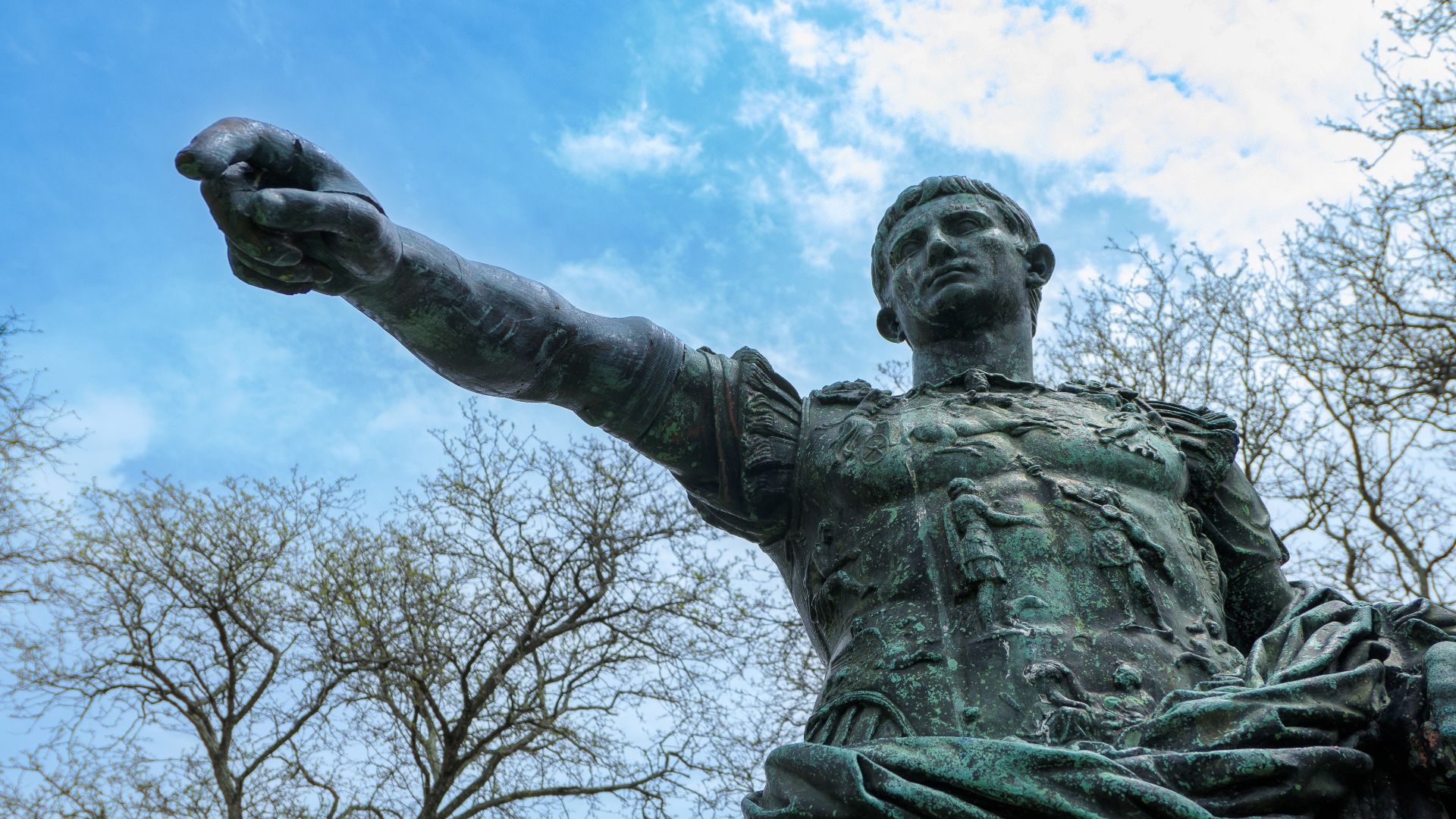 Kenneth C. Zirkel, Wikimedia Commons
Kenneth C. Zirkel, Wikimedia Commons
40. He Stood Trial
As Augustus later stated, "It is better to be Herod's pig than his son," which was all the more evident when Antipater appeared on trial before the Roman governor of Syria in 5 BCE. It seems that plotting against Herod was a family trait, since Antipater stood accused of an intention to slay his father.
He wouldn’t fare much better than his brothers.
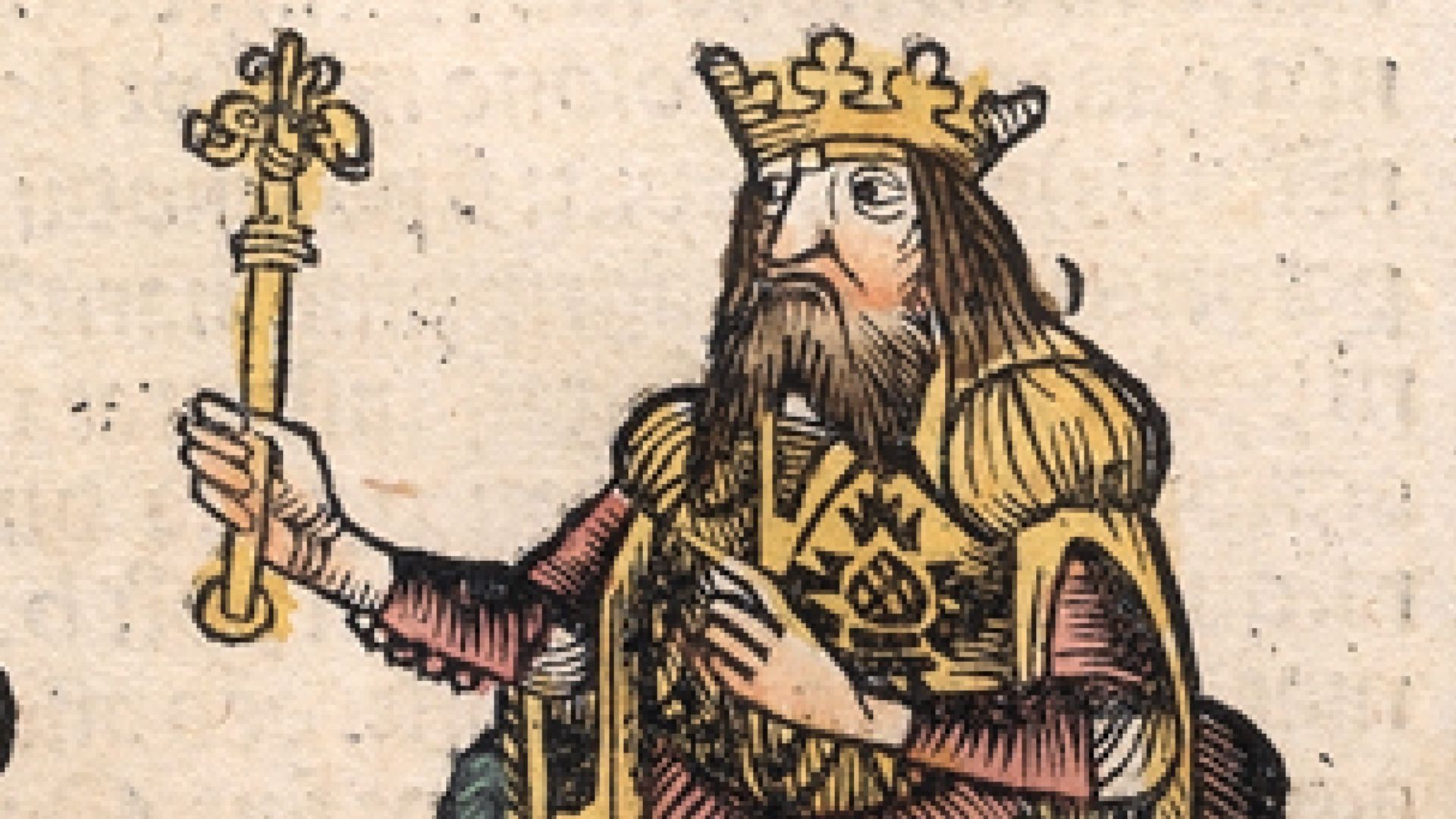 Unknown authorUnknown author, Wikimedia Commons
Unknown authorUnknown author, Wikimedia Commons
41. He Needed Approval
The accusations against Herod’s first son were severe, and it didn’t take long for the Roman governor to find him guilty of treason. There was a glimmer of hope for Antipater, as his sentence would need the green light from Augustus before it went through. Unfortunately for him, Caesar gave his judgment, and the governor had Antipater executed in 4 BCE.
According to other stories, Herod’s children weren’t the only ones who met untimely ends.
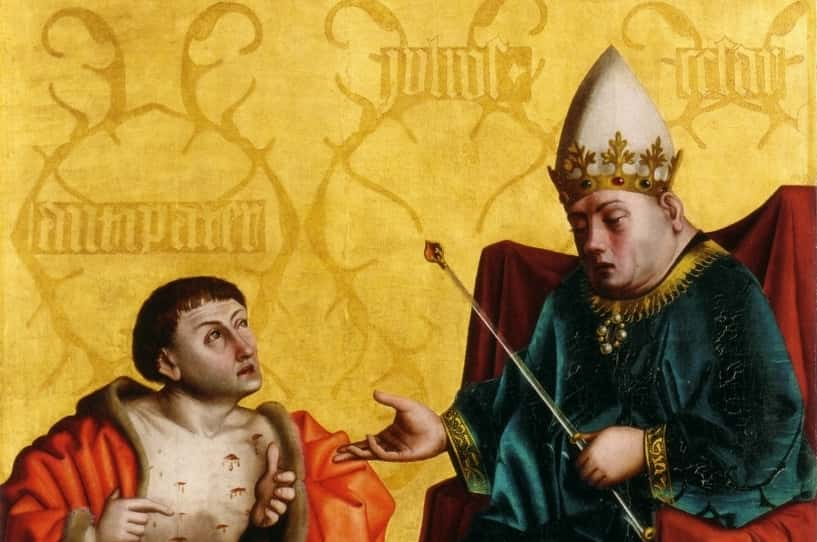 Konrad Witz, Wikimedia Commons
Konrad Witz, Wikimedia Commons
42. He Committed An Atrocity
Another glimpse into Herod’s tyrannical reputation comes from the Bible’s New Testament, where he plays a big role in the beginning of Jesus’ story. According to this, Herod learned of Jesus’ birth and how he would become the new king. In response, after Jesus eluded his grasp, Herod allegedly took the lives of every child in the town of Bethlehem.
There are several takes on this story.
 Gerard van Honthorst, Wikimedia Commons
Gerard van Honthorst, Wikimedia Commons
43. It May Be Metaphorical
Seeing as there are no specific records of Herod slaughtering all of Bethlehem’s children, many historians have proposed their interpretations of the story. Several lines of thinking suggest that this story is a literary device to represent one of Herod’s other wicked acts, such as slaying his own children, perhaps.
Others have different theories.
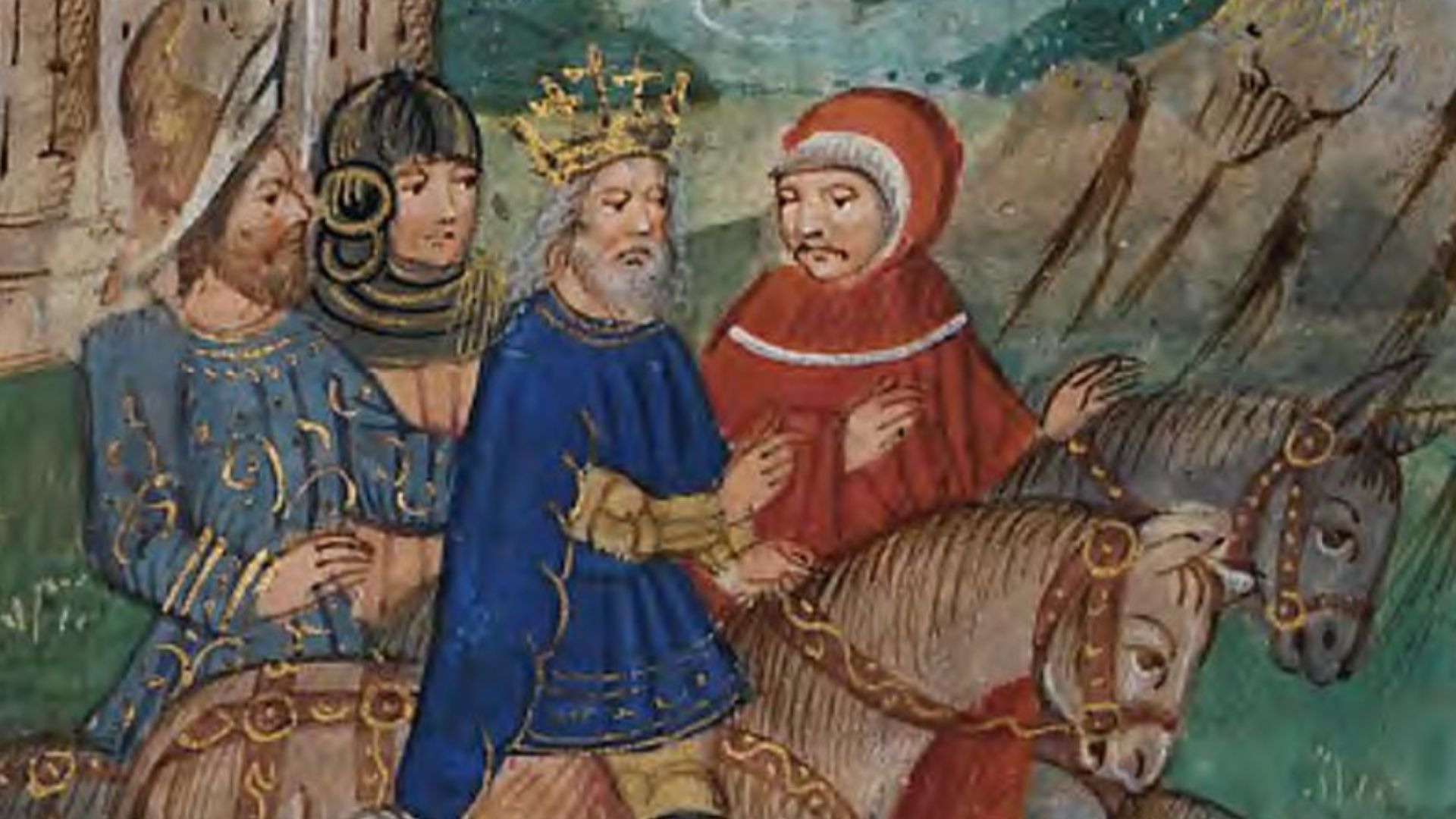 Unknown authorUnknown author, Wikimedia Commons
Unknown authorUnknown author, Wikimedia Commons
44. They Might Have Overlooked It
If Herod did indeed slay those children as the New Testament says, other historians like Paul Maier may have the answer as to why there isn’t more evidence. He has suggested that, since Herod was notorious for his tyrannical ways, and Bethlehem was no more than a small town, other accounts may not have thought the event was worth mentioning.
Still, his own story was coming to an end.
 Vic Film, Herod the Great (1959)
Vic Film, Herod the Great (1959)
45. His Health Declined
Even the most ruthless kings have to die eventually. And considering what Herod had done with his poor wife Mariamne’s body, the symptoms of his illness were both extremely gruesome and incredibly fitting.
What began as severe afflictions to Herod’s mind became much more physical as he eventually contracted an illness so horrible, it became known as “Herod’s Evil”. The symptoms are listed as "intense itching, painful intestinal problems, breathlessness, convulsions in every limb, and gangrene of the [reproductive organs]".
Herod's illness put him in such intense agony that he attempted to drive a blade into his gut, before his cousin stopped him. This isn’t the only version of events, though.
46. It May Have Worked
In one account, Herod attempted to take his own life before his cousin saved him, only for Herod to pass from his illness shortly after. However, this may have happened differently, as some records have suggested Herod was successful and that his demise came at his own hand.
Thousands of years later, researchers took a closer look at the accounts of Herod's illness, and came up with an explanation for what afflicted him. They believe that he suffered from a combination of chronic kidney disease and Fournier's gangrene, which typically affects the reproductive area. They think that the Fournier's gangrene could've come from an abdominal infection that spread, from a bad case of the clap, or, perhaps most disgustingly, from Herod's disturbing compulsion to constantly scratch himself...down there.
Whatever the case, he had already prepared for the moment.
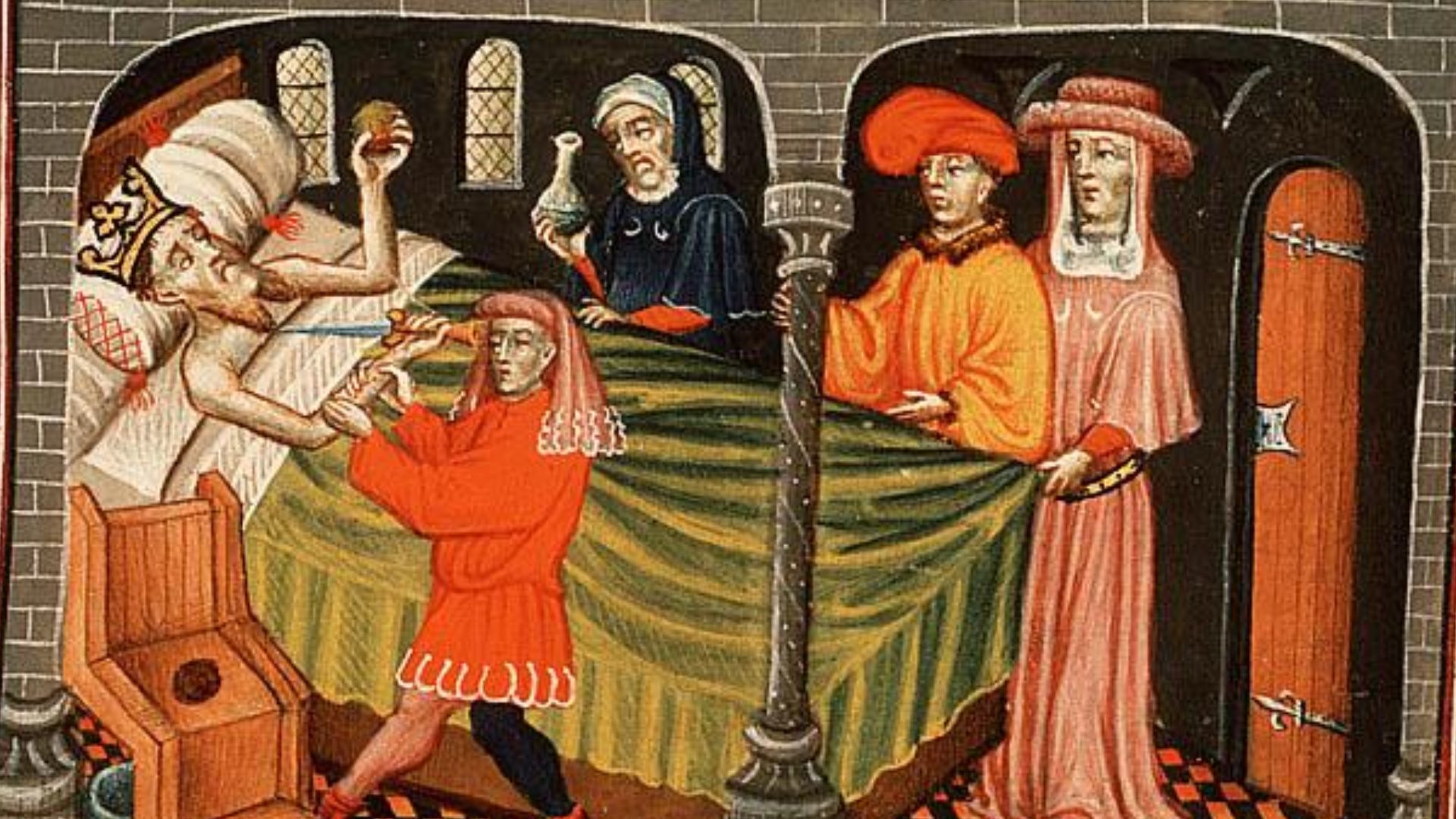 Alexander Master, Wikimedia Commons
Alexander Master, Wikimedia Commons
47. He Forced Their Sadness
Herod knew that his actions as king had earned him the distaste of nearly everyone he ruled over, but he couldn’t stand the idea of nobody mourning his passing. To solve this, he made a bone-chilling command. He summoned a large group of esteemed men who were to be slain upon his demise. This would ensure that his own end would be greeted with a show of tears and grief.
His concern about legacy may have been valid.
48. They Found It
Multiple scholars have tried to determine the exact location of Herod’s resting place, but in 2007, Hebrew University professor Ehud Netzer set out to find it. Sure enough, while searching the ruins of Herodium, he and his team allegedly found the tomb, containing a broken sarcophagus—but none of the king’s remains.
Some remain doubtful.
49. They Refuted It
Especially since Herod’s remains weren’t actually inside his supposed tomb, Netzer’s claim that he found the king’s burial place attracted a fair share of criticism. For instance, several archaeologists, such as David Jacobson and Joseph Patrich, have called the finding inconclusive and stated that the alleged tomb was far too modest for Herod.
Even if the empty tomb wasn’t his, a hollow shell is indicative of Herod’s values in life.
50. He Was Hypocritical
Over the years of Herod’s reign, he constantly strived to improve his reputation among the cultural groups under his rule. Part of this effort emphasized his Jewish upbringing and asserted that he identified as Jewish. However, many of his insensitive actions and his indulgent lifestyle caused most of his Jewish subjects to rebuke him.
Naturally, his demise caused quite the uproar.
 Domenico Ghirlandaio, Wikimedia Commons
Domenico Ghirlandaio, Wikimedia Commons
51. They Were Outraged
Herod may have taken steps to ensure a response of grief to his passing, but thanks to his remaining family intervening, this order never came to pass. On the other hand, there was little to celebrate either, considering the Jewish people were still dealing with the difficulties and suffering he had caused. So, instead of sadness or joy, Herod’s demise was met with discontent and fury, resulting in widespread riots across Judea.
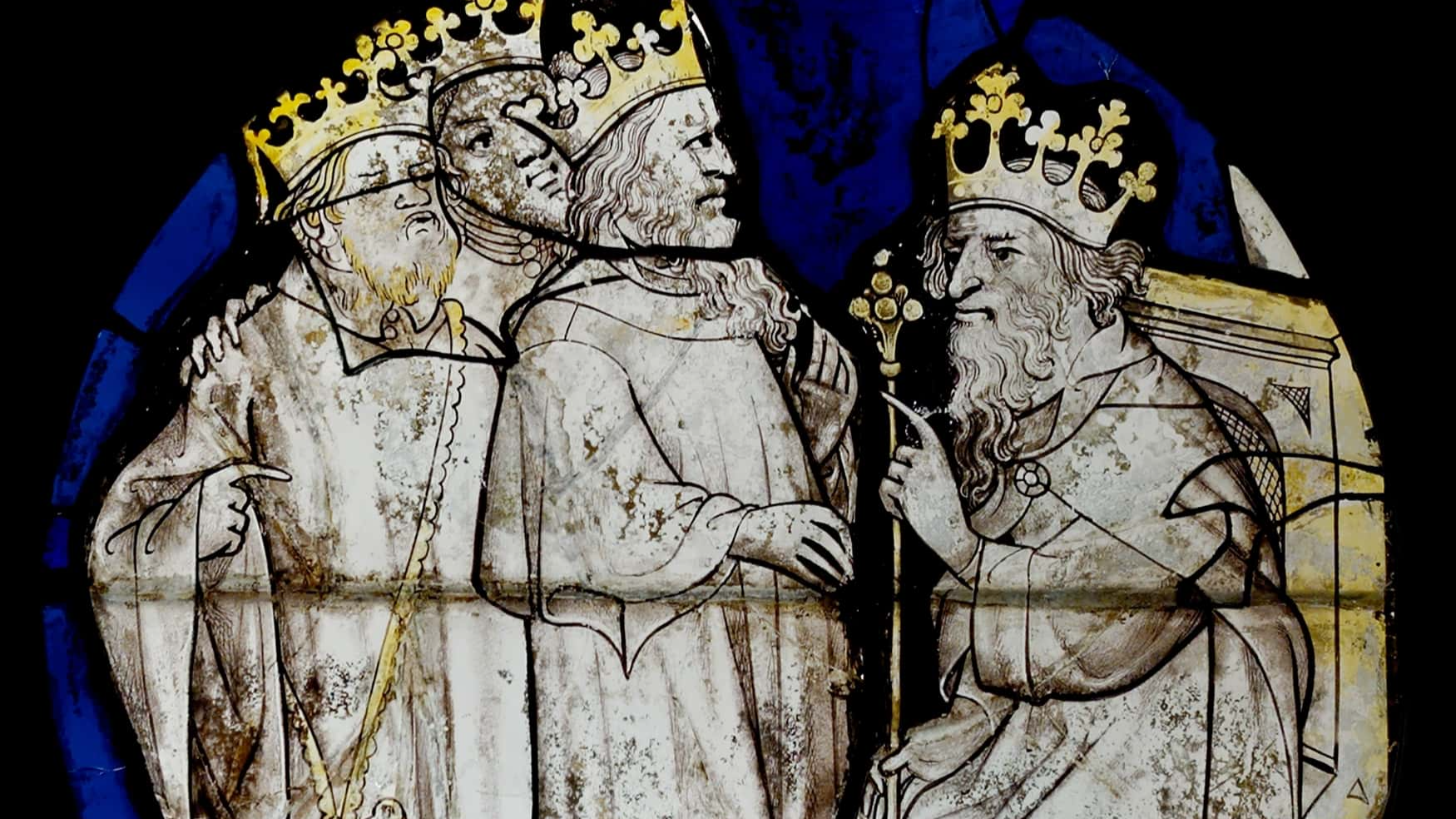 Musee de Cluny, Wikimedia Commons, Wikimedia Commons
Musee de Cluny, Wikimedia Commons, Wikimedia Commons
You May Also Like:
Rasputin Was The Most Feared Man In History
The Dark End Of History’s “Last Knight”

